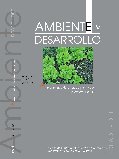Abstract
Los sistemas de producción agropecuarios son formas en las que se organizan einterrelacionan los diferentes elementos o factores de producción, con el objetivode producir un bien primario agrícola o pecuario. El objetivo del presente trabajoes analizar el manejo del agua y del suelo en los sistemas de producción campesinofamiliar comparativamente con el sistema de producción empresarial, como factoresdeterminantes de la sustentabilidad ambiental. Se estudian dos casos: unoes la producción empresarial de zarzamora en el Valle de Los Reyes en el estado deMichoacán, México, y otro es la producción de mora tipo campesino familiar en eldepartamento de Caldas, Colombia. Estos dos tipos de sistemas manifiestan formasde organización social contrastantes y lógicas de manejo diferentes de los recursosagua y suelo. Una de las conclusiones es que se evidencia mayor grado de sostenibilidadambiental, en cuanto al manejo de suelos y agua, en los sistemas campesinosen comparación con los sistemas empresariales.Ambiente y Desarrollo is registered under a Creative Commons Attribution 4.0 International Public License. Thus, this work may be reproduced, distributed, and publicly shared in digital format, as long as the names of the authors and Pontificia Universidad Javeriana are acknowledged. Others are allowed to quote, adapt, transform, auto-archive, republish, and create based on this material, for any purpose (even commercial ones), provided the authorship is duly acknowledged, a link to the original work is provided, and it is specified if changes have been made. Pontificia Universidad Javeriana does not hold the rights of published works and the authors are solely responsible for the contents of their works; they keep the moral, intellectual, privacy, and publicity rights.
Approving the intervention of the work (review, copy-editing, translation, layout) and the following outreach, are granted through an use license and not through an assignment of rights. This means the journal and Pontificia Universidad Javeriana cannot be held responsible for any ethical malpractice by the authors. As a consequence of the protection granted by the use license, the journal is not required to publish recantations or modify information already published, unless the errata stems from the editorial management process. Publishing contents in this journal does not generate royalties for contributors.


